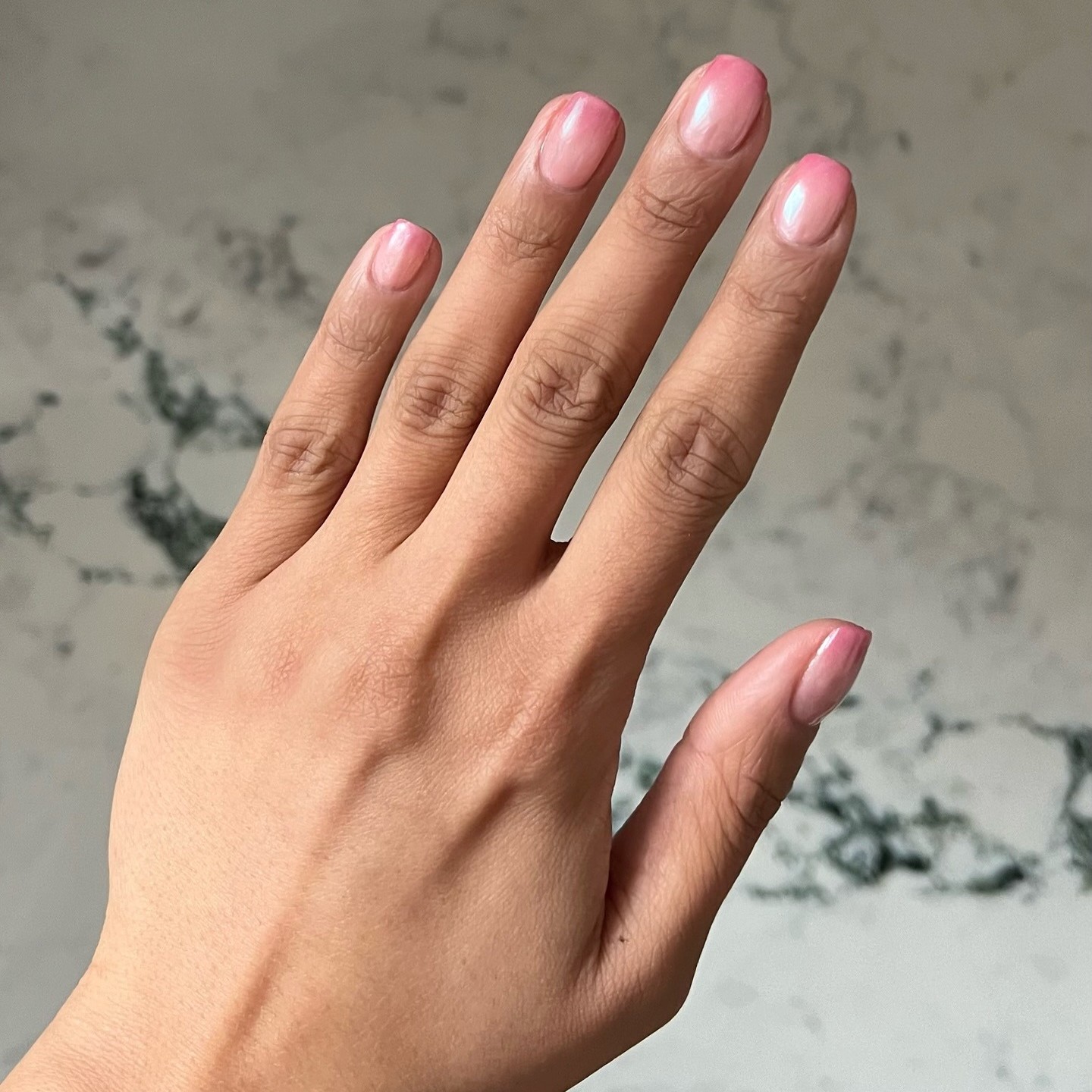I Tried Everything for Acne, But This Dermatologist Recommendation Worked

Throughout my adult life, I've drawn the short straw when it comes to the health of my skin. I've long experienced eczema and acne during my 20s (perhaps my karma for having well-behaved skin in my teenage years). The latter, however, has been the most stubborn to treat.
I have oily skin, and I found myself developing painful cystic acne on my chin in my early 20s. These under-the-skin bumps would form around my chin, and as one disappeared, another would return in its place—I felt like I was in a constant game of whack-a-mole with my breakouts. I'm fortunate that it was not severe and mostly localised to one area of my skin. However, it was painful, made me feel self-conscious, and it never seemed to go away.
I tried just about every acne skincare product going with no long-lasting success. I visited my GP and was prescribed oral antibiotics (which worked at first, but my acne always returned when I stopped and came back more aggressively), then topical antibiotics and a topical benzoyl peroxide cream, which also didn't work for me long-term. I had blood tests to rule out PCOS, I tried cutting out dairy, taking herbal teas and supplements. I even went for facials to try to reduce my breakouts. But these lifestyle changes were one, unsustainable (because who wants to eliminate cheese and ice cream forever needlessly?) or two, expensive to maintain.
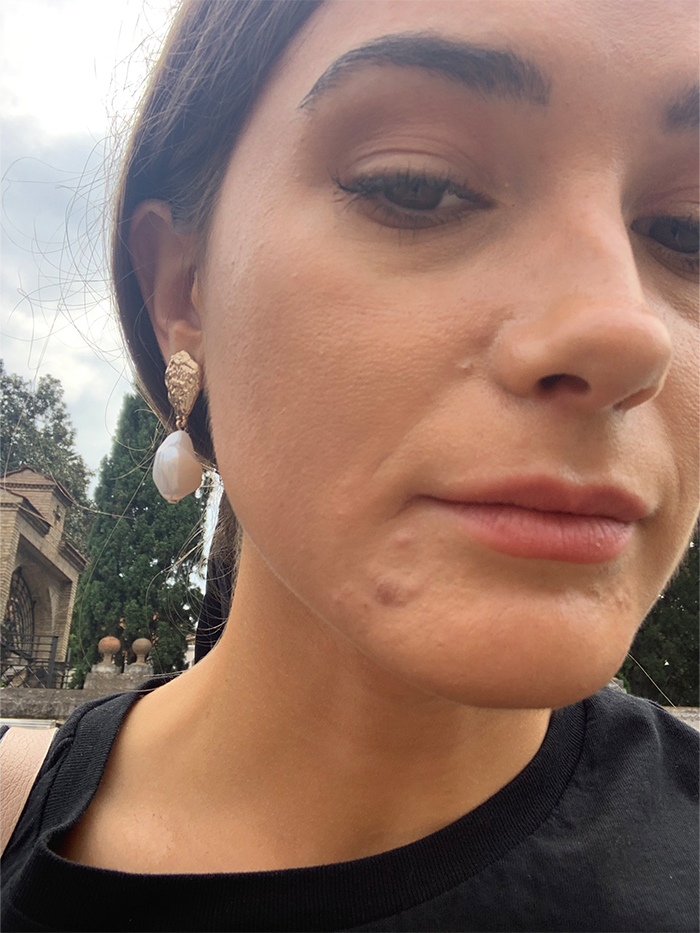
My hormonal acne was localised to my chin and would appear in red cystic bumps.
At this point, I'd been experiencing cystic acne for years, and my skin was getting worse and really getting me down (not to mention the acne scarring aftermath of each breakout). I'd had a hunch for a long time that no matter what I put on my skin, it wouldn't work, as there was something going on internally. I'd lost count of how many times I had visited the GP. Exasperated, I returned to my doctor again, who was sympathetic towards skin conditions, and she referred me to see a dermatologist through the NHS.
Getting this dermatologist appointment was a real breakthrough, as I felt I was finally being understood. At the time of my appointment, I was experiencing an eczema flare too, but she reassured me that we could address my hormonal acne at the same time as my eczema. Roaccutane is one acne treatment path that is offered if suitable. However, as my skin was eczema prone, this wasn't suitable for me. Roaccutane is an oral medication that treats acne, but it can make the skin temporarily very dry, so we concluded this wouldn't be suited to my eczema-prone skin. Instead, we decided to try a medication called spironolactone. And let me tell you it changed the game for my skin.
Curious to know more about spironolactone treatment for acne? I spoke to Malvina Cunningham, dermatologist for Skin+Me, who shared everything you need to know about this acne medication.
What is spironolactone?
"Spironolactone is a tablet that is primarily used to treat high blood pressure and fluid build-up in the body due to heart disease for example," explains Cunningham. "It also has effects on the hormones in our body and specifically androgens known as the male hormones, which are also produced in small amounts in females. This is why it can be helpful in hormonal acne, which can be due to an increased level of or an increased sensitivity to androgens."
Who can prescribe spironolactone?
"Spironolactone is prescribed by different doctors depending on the indication, but when used for skin conditions such as hormonal acne, it is typically prescribed by a specialist consultant dermatologist," explains Cunningham. Therefore, for acne treatment, you will need to seek a dermatologist. "In this situation, it is prescribed 'off-licence,' which means the medication is used in a different way to that described in its licence as determined by national regulatory bodies," she adds.
What are the benefits of taking spironolactone for acne?
"Spironolactone can be helpful for a number of conditions where androgen excess or sensitivity is thought to play a role, such as hormonal acne, hirsutism (it can reduce excess facial and body hair) and female pattern hair loss (it can increase the thickness of scalp hair)," says Cunningham. "It can be helpful for women suffering from hormonal acne, but it is slow to work, and it usually takes several months to see an improvement."
Who is suitable to take spironolactone?
"Spironolactone may be considered as a treatment for female adult acne that have not responded to standard acne treatments," says Cunningham. Therefore, you're likely to be encouraged to try a few things before being referred or prescribed spironolactone. "Your consultant dermatologist will discuss the pros and cons of each treatment option with you before making the decision. Spironolactone is not suitable to be taken during pregnancy, and it is not prescribed for male adults with acne," she adds.
How long goes it take spironolactone to work?
"Spironolactone is slow to work, and it can take several months before you see an effect," says Cunningham. The medication is typically prescribed for a year or two and then titrated or stopped depending on how controlled the acne is. "The usual starting dose for acne patients is between 25 and 50 milligrams per day titrated up to 100 to 150 milligrams depending on effect and how well it is tolerated," she says. "It may be taken in combination with other standard acne treatments and /or an oral contraceptive, which may help with side effects."
What are the side effects of spironolactone?
The most common side effects are dizziness, irregular menstrual cycles and breast tenderness, says Cunningham. "Taking spironolactone with the oral contraceptive pill also helps with side effects," she says. Less common side effects can include fatigue, gastrointestinal side effects, headaches, loss of libido, and rarely, it can increase the level of potassium in your blood. "Depending on your other medical problems, some patients therefore need blood monitoring whilst taking spironolactone," she adds.
Is spironolactone acne treatment worth it?

My skin after taking spironolactone.
As this is a medical treatment, suitability will vary from person to person, and a dermatologist will be able to determine this for you. Everyone is different, but speaking from my own experience on spironolactone, this has been the only acne treatment that has made a real difference. In fact, it's one of the best decisions that I've made for my skin. With fewer breakouts, I've been able to address the acne scarring and irregular skin texture with radiofrequency micro-needling. Each time I increased my medication, I was required to have blood tests to ensure it was still suitable for me. This was probably the most annoying part of the process, but no pain, no gain, right?
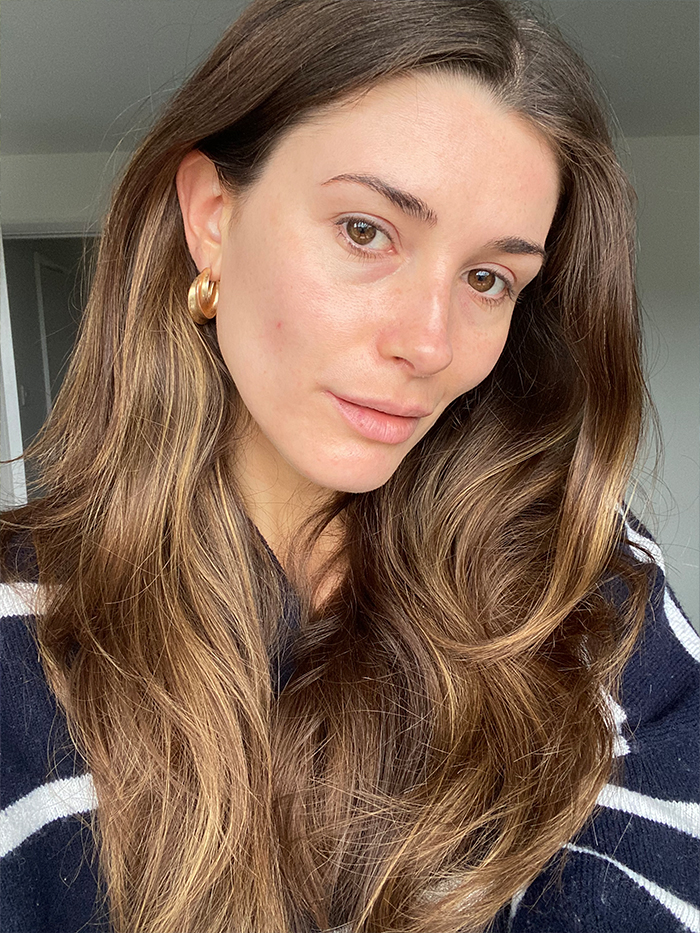
My breakouts have significantly reduced since taking spironolactone.
I've now been taking this medication for around two years. While I still experience the odd hormonal breakout, I no longer get those inflamed, under-the-skin spots that take weeks to go away. As Cunningham mentioned, it takes a couple of months to see a difference when you first start out, so you will need to be patient for the results. I started to see a difference around two to three months after starting my dosage, and my dermatologist gradually increased this over time until we found the right one for me.
Symptoms-wise, I only experienced irregular periods at the start of taking this medication, and these settled quickly. A word of warning that this medication is a diuretic, so you may mind that you have to pee more often than usual! But it's a tradeoff I'm willing to accept to have finally balanced my skin and cured my cystic acne.
Up Next, 20 Moisturisers That Won't Clog Your Pores at All

Eleanor Vousden is the beauty editor for Who What Wear UK. She was previously deputy editor at Hairdressers Journal, health writer at Woman & Home and junior beauty editor at Powder. She has also contributed to Wallpaper and Elle Collections.With a degree in fashion journalism from the London College of Fashion, she has 10 years of industry experience and has been highly commended at the BSME Talent Awards for her work on Powder and also contributed to the title winning Website of the Year at the PPA Awards.Eleanor’s journalistic focus is providing readers with honest and helpful beauty content. She has interviewed celebrity makeup artists, hairstylists and dermatologists throughout her career, as well as celebrities such as Hailey Bieber, Sarah Jessica Parker and Scarlett Johansson.
-
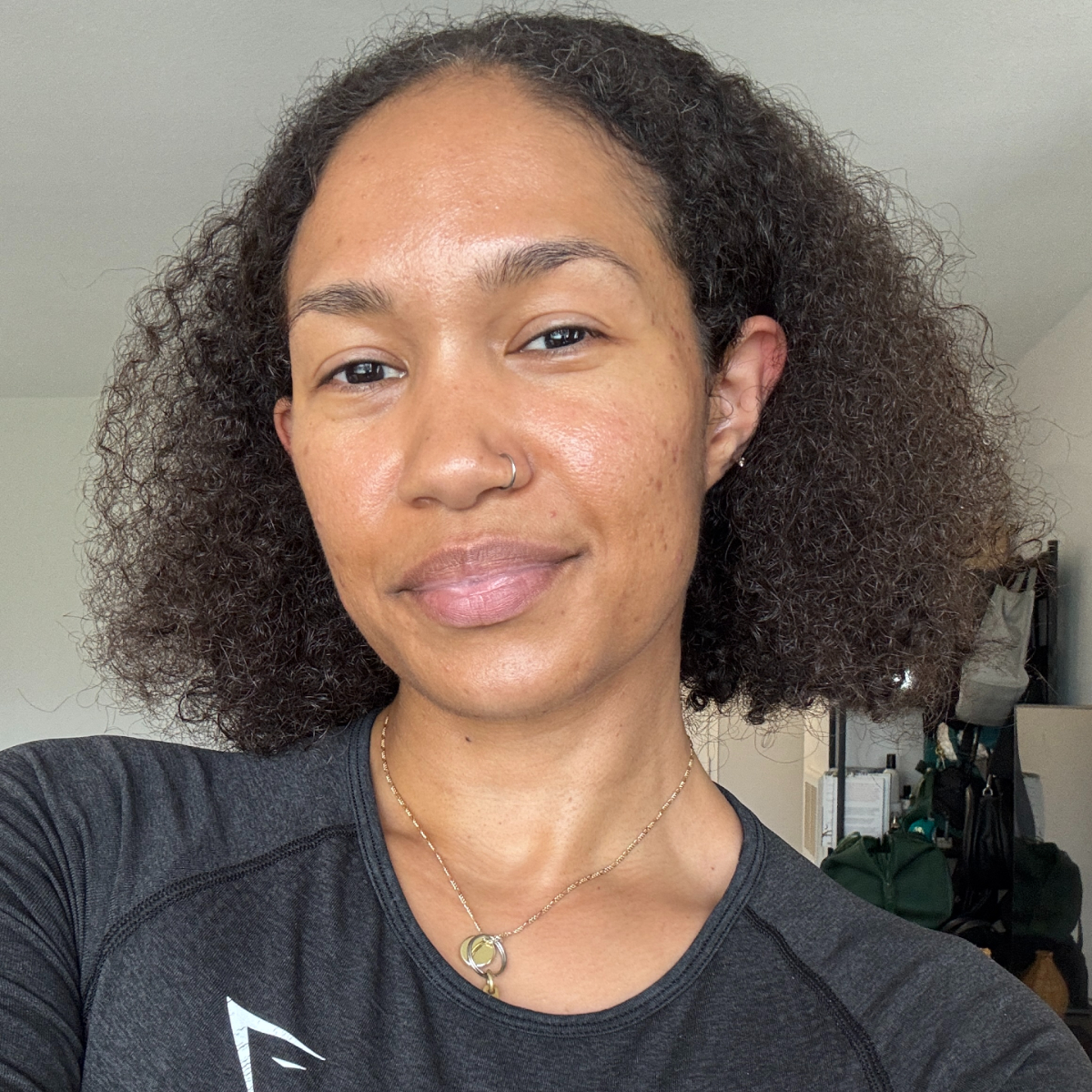 Aestheticians on Instagram Can't Stop Raving About This Acne-Clearing Serum, so I Tried It
Aestheticians on Instagram Can't Stop Raving About This Acne-Clearing Serum, so I Tried ItIt's perfect for sensitive skin.
By Shawna Hudson
-
 Lili Reinhart Knows You're Sick of Celeb Beauty Brands—Here's Why She Wants You to Trust Hers
Lili Reinhart Knows You're Sick of Celeb Beauty Brands—Here's Why She Wants You to Trust HersEspecially if you have acne.
By Kaitlyn McLintock
-
 Derms Say Tretinoin Can Do More Harm Than Good If You Don't Know These 4 Things
Derms Say Tretinoin Can Do More Harm Than Good If You Don't Know These 4 ThingsRead this before you use it.
By Kaitlyn McLintock
-
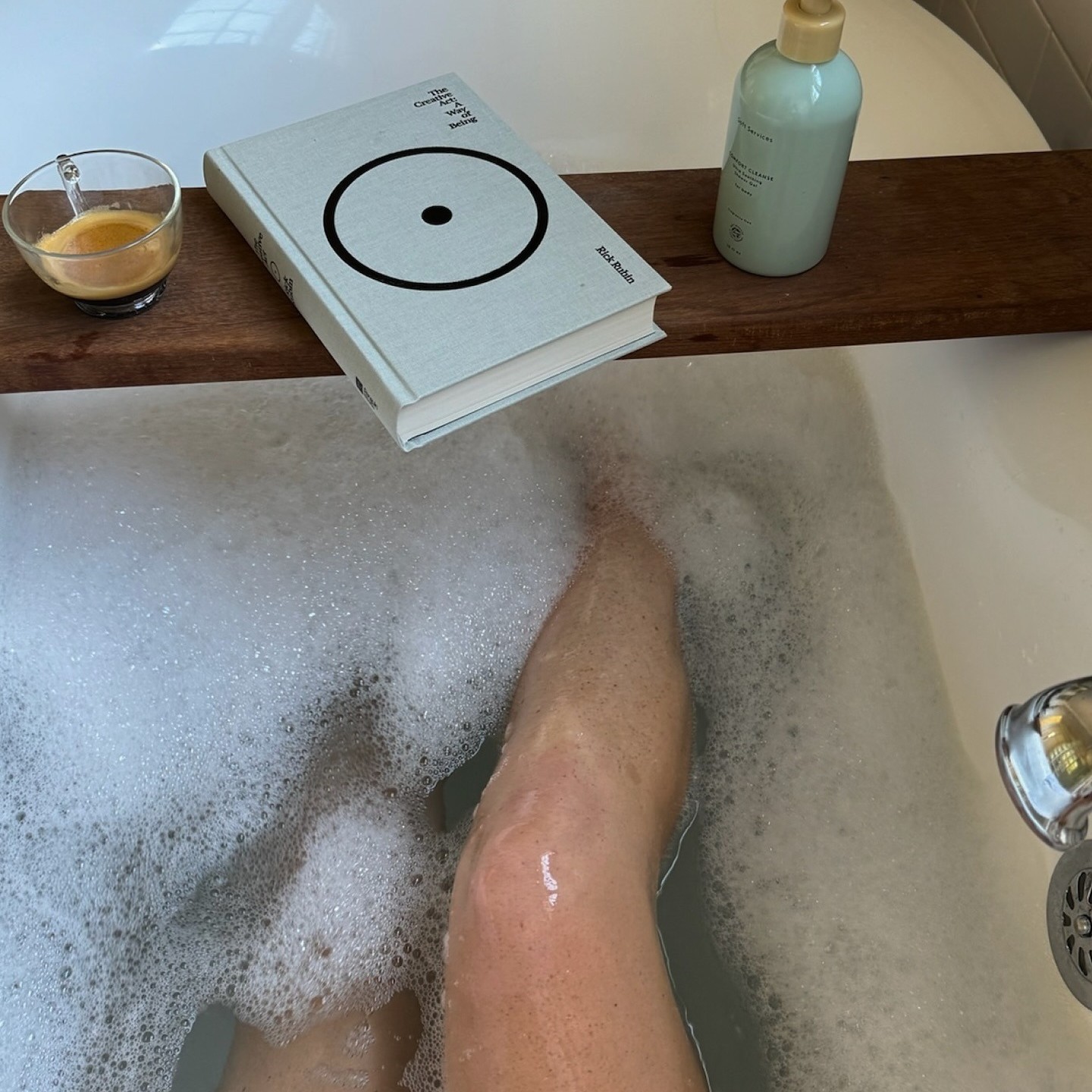 Soft Services' New Buffing Bar Smells Like Every Editor's Favorite Fig Perfume
Soft Services' New Buffing Bar Smells Like Every Editor's Favorite Fig PerfumeSo dreamy.
By Jamie Schneider
-
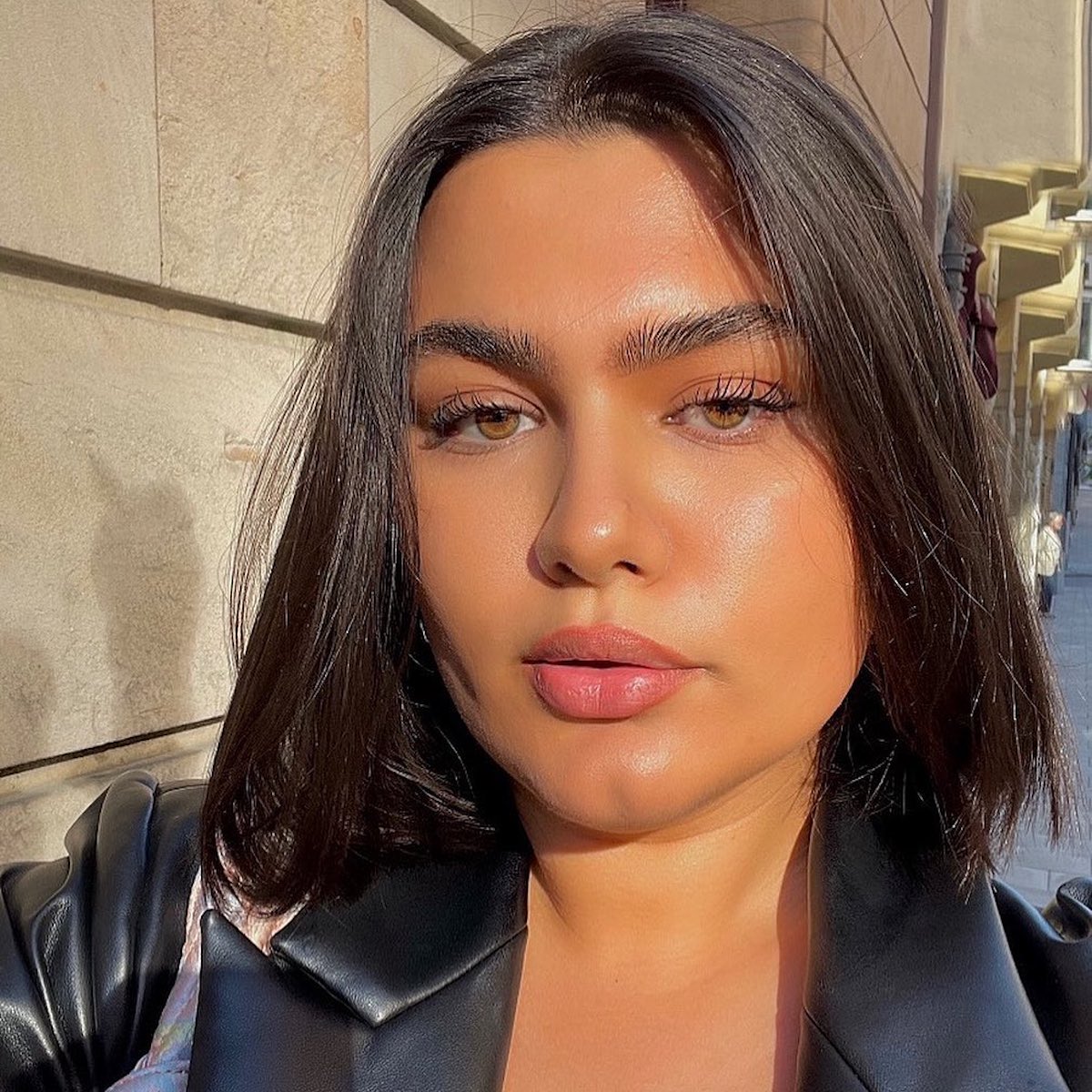 Derms Love This Do-It-All Ingredient to Minimize Redness, Dark Spots, and Large Pores
Derms Love This Do-It-All Ingredient to Minimize Redness, Dark Spots, and Large PoresIt even targets acne.
By Kaitlyn McLintock
-
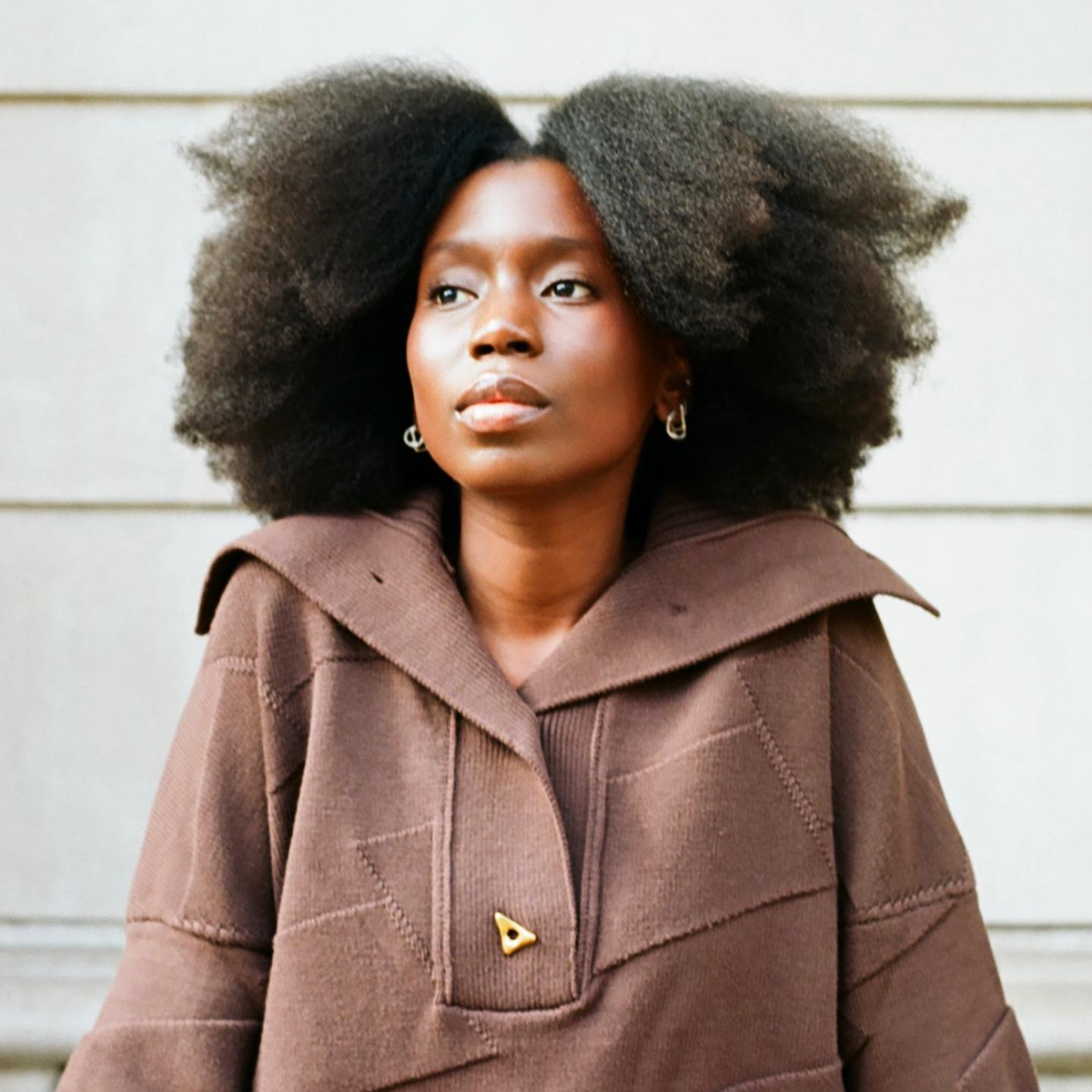 My Aesthetician Just Told Me I've Been Doing These 3 Things Wrong for My Acne
My Aesthetician Just Told Me I've Been Doing These 3 Things Wrong for My AcneMajor face-palm moment.
By Shawna Hudson
-
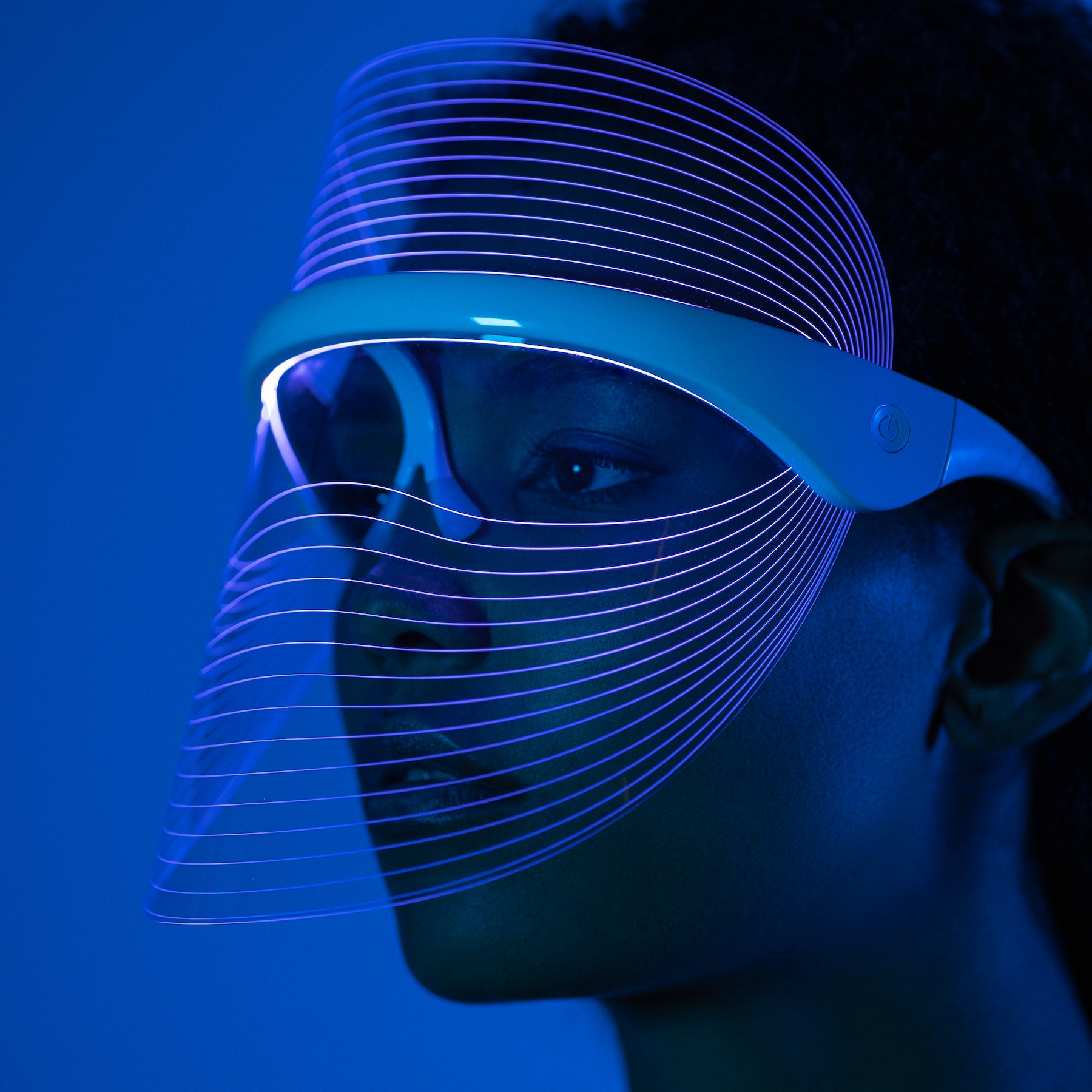 These Light Therapy Devices Are Like At-Home Cortisone Shots for Acne
These Light Therapy Devices Are Like At-Home Cortisone Shots for AcneSign me up.
By Katie Berohn
-
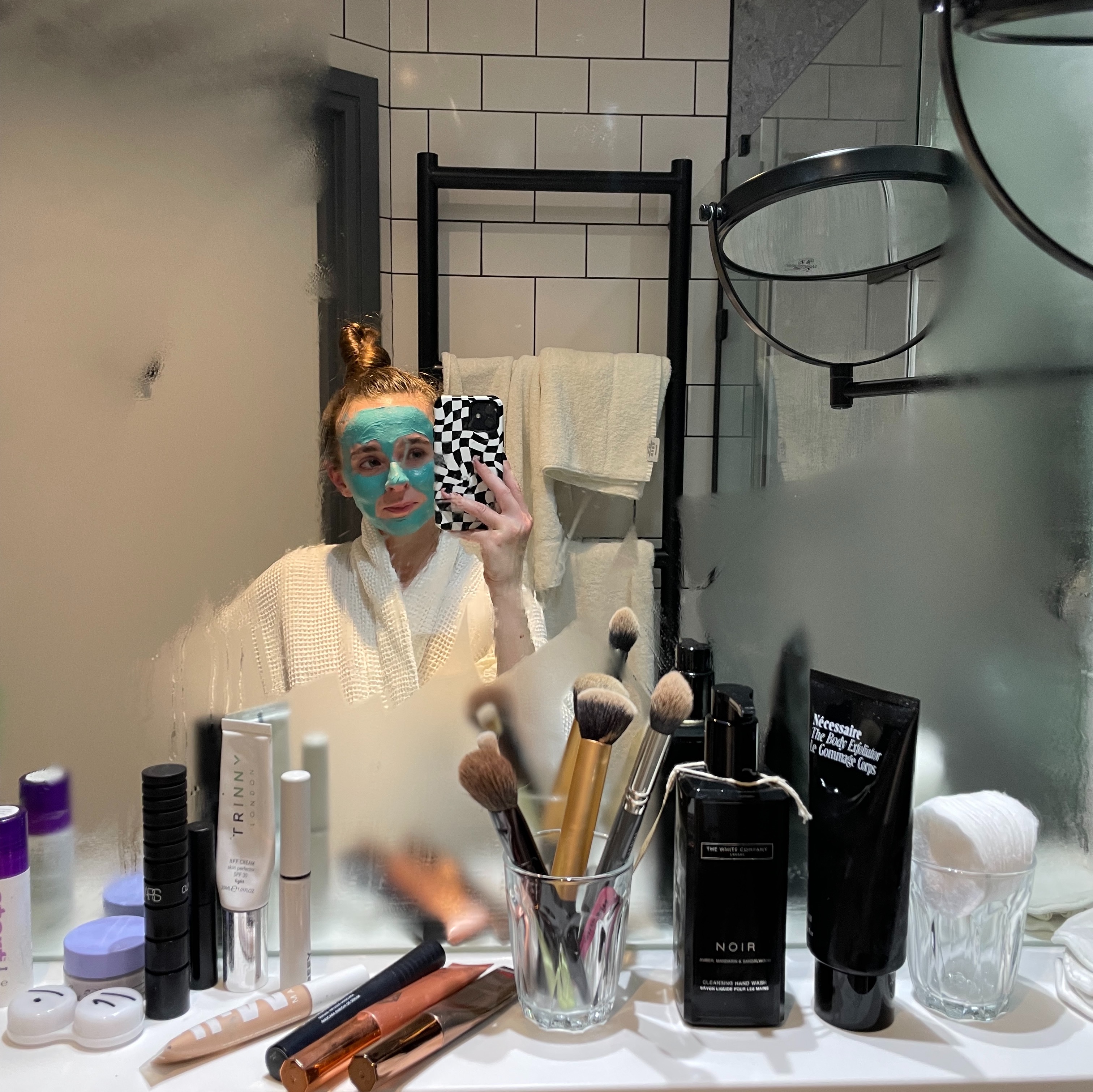 I'm an Esthetician and These Are My Most-Recommended Skincare Products
I'm an Esthetician and These Are My Most-Recommended Skincare ProductsYour skincare shopping list.
By Grace Day

